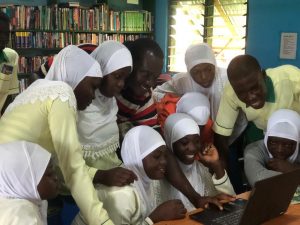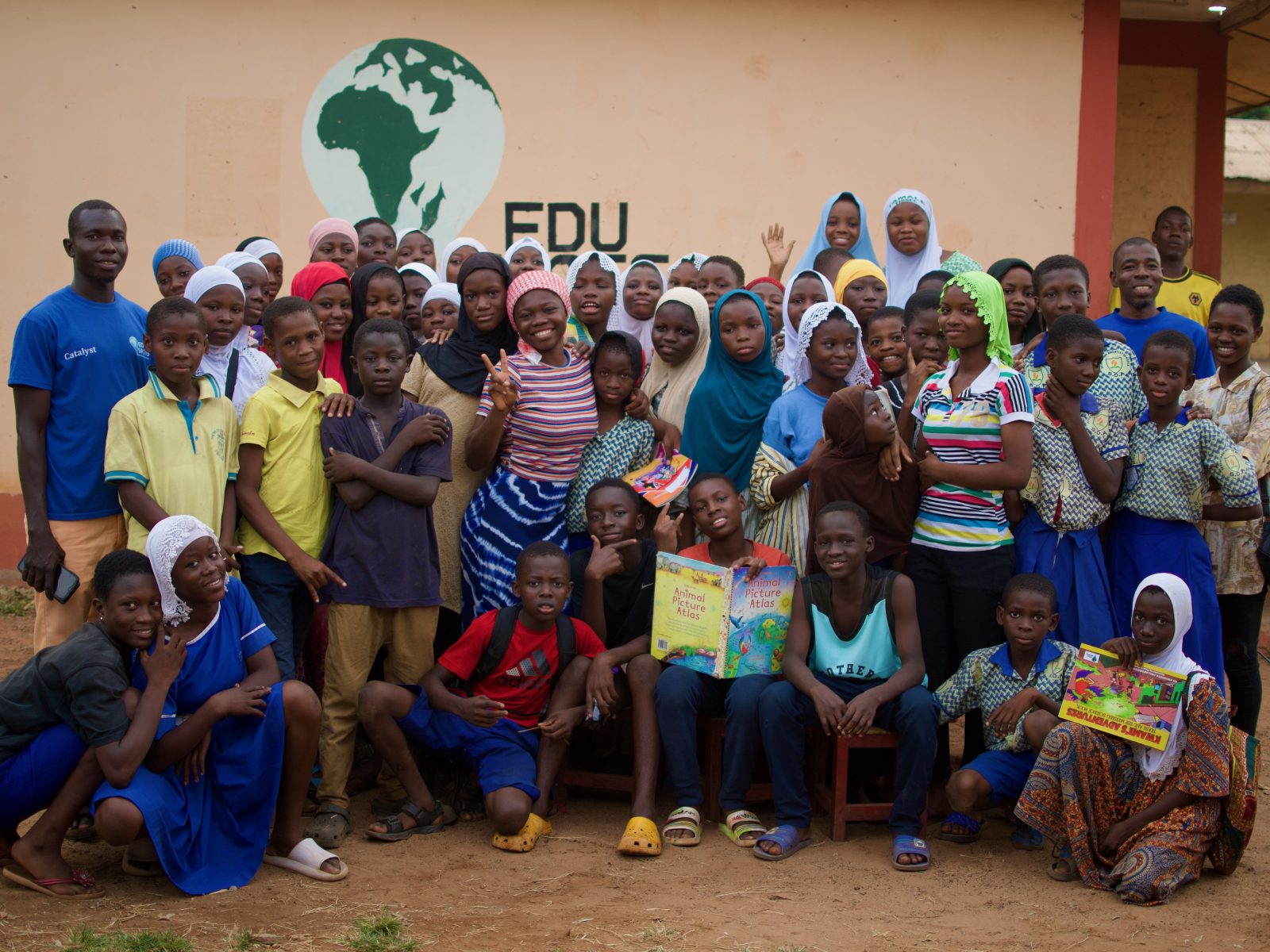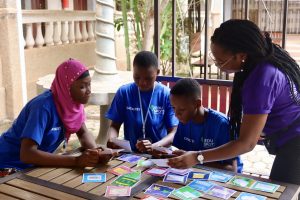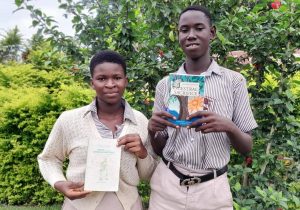Monthly Literacy Challenges
Students in our EduLit clubs are encouraged to think critically and creatively via the EduSpots Monthly Literacy Challenge. These activities are intended to encourage inclusive learning for children aged 10 to 14.


Literacy development is central to our commitment to collaborating with local communities to build a more sustainable future.
The EduLit initiative aims to turn community learning spaces such as libraries into active hubs for young people to improve their reading skills, uncover their creative potential, as well as their leadership and critical thinking skills, in order to influence social change in a fast-changing world.
We provide essential training to local volunteers in Spots through school and community-based EduLit clubs, allowing them to provide a wide range of pupil-centered and play-based literacy activities in areas such as reading, phonemic awareness, public speaking, creative writing, and reporting.
The EduLit initiative is heavily focused on cooperating with volunteers to generate locally appropriate materials that are very reflective of the cultural environment in which education is structured. Given the effect of our community-inspired materials, such as the renowned Kwame’s adventures and phonic packs, which continue to spark interest in reading, we have created the Year of African Books campaign to promote fiction and non-fiction works written by Africans.
Individuals, groups, teachers, pupils, and parents are welcome to join our Monthly Literacy Challenges – EduSpots.
Our EduLIT Club Resources – EduSpots provides resourceful and scalable practises on how to start a literacy club as well as ideas to sustain one.
For more information, contact Anna Avugla at aavugla@eduspots.org.
Students in our EduLit clubs are encouraged to think critically and creatively via the EduSpots Monthly Literacy Challenge. These activities are intended to encourage inclusive learning for children aged 10 to 14.
Find ideas for literacy development here
Our literacy clubs focus on harnessing the literacy skills (writing, debating and public speaking, reading, listening, acting, drawing) of students, with a focus on developing creative and critical thinking.

